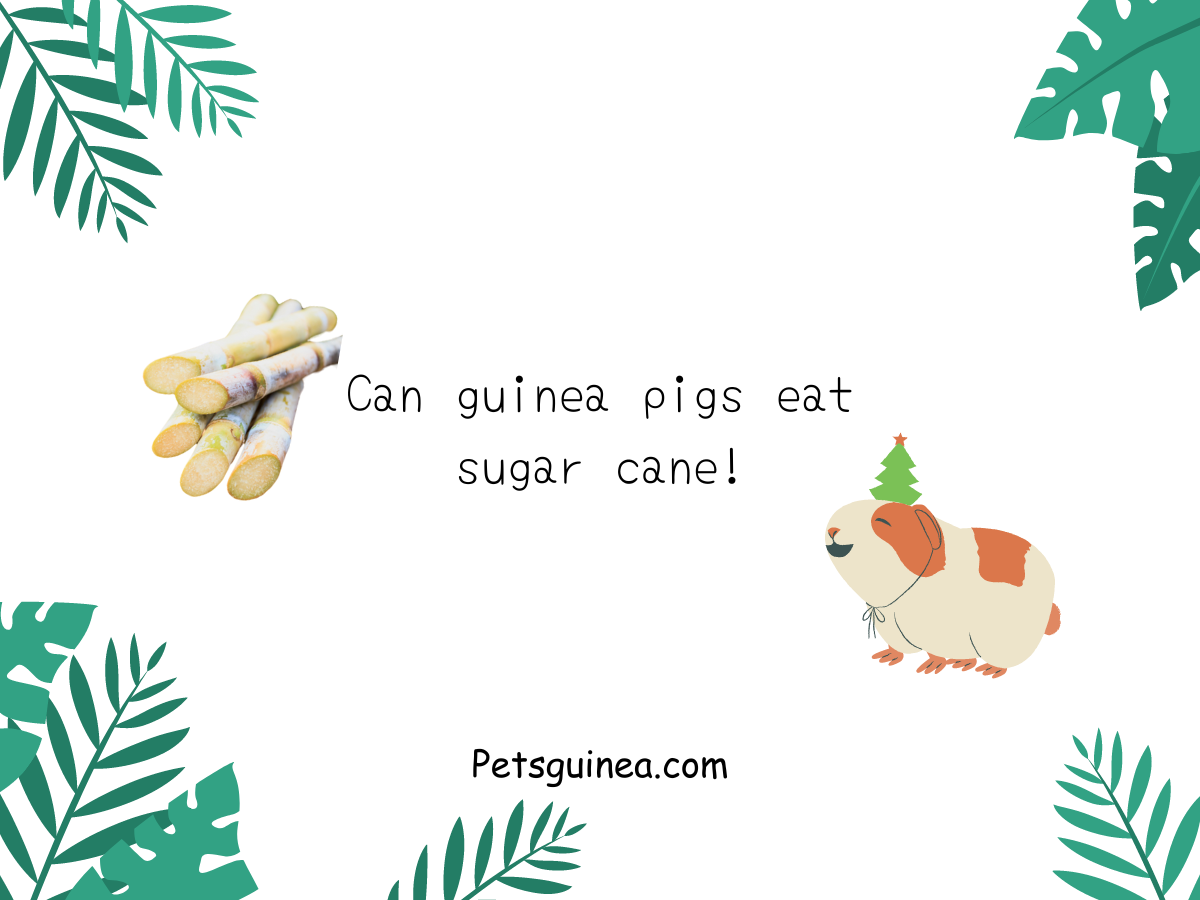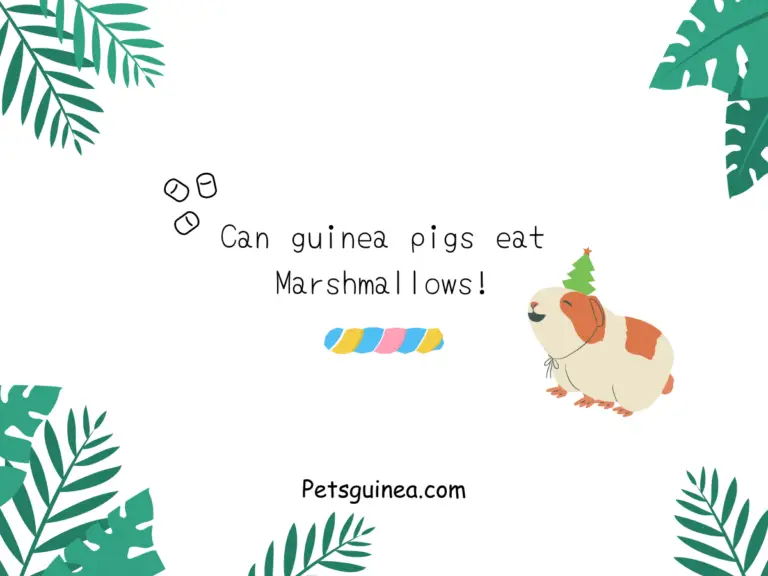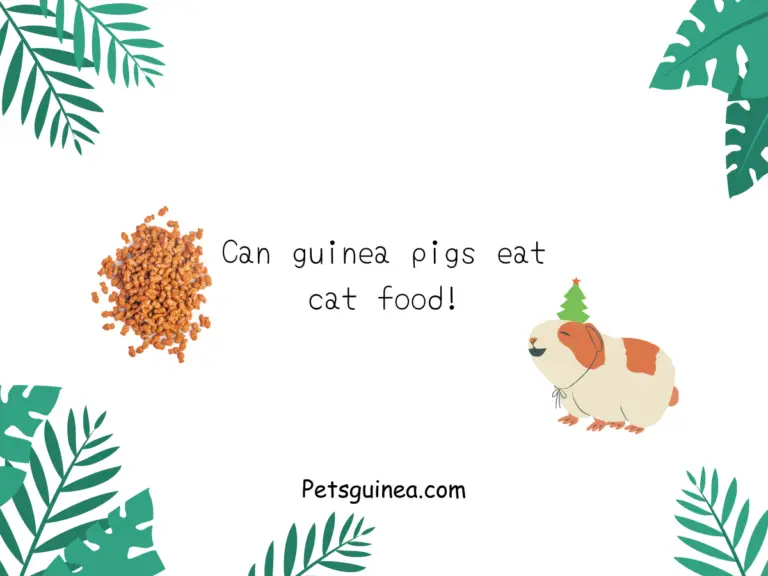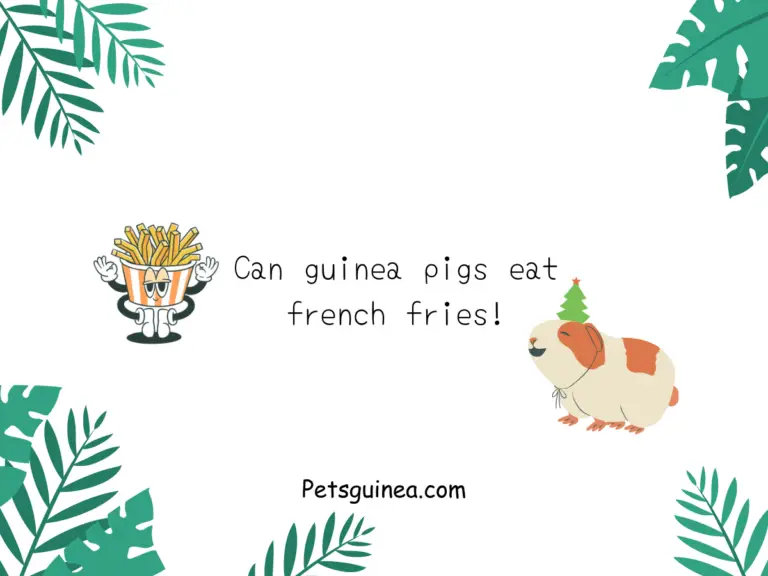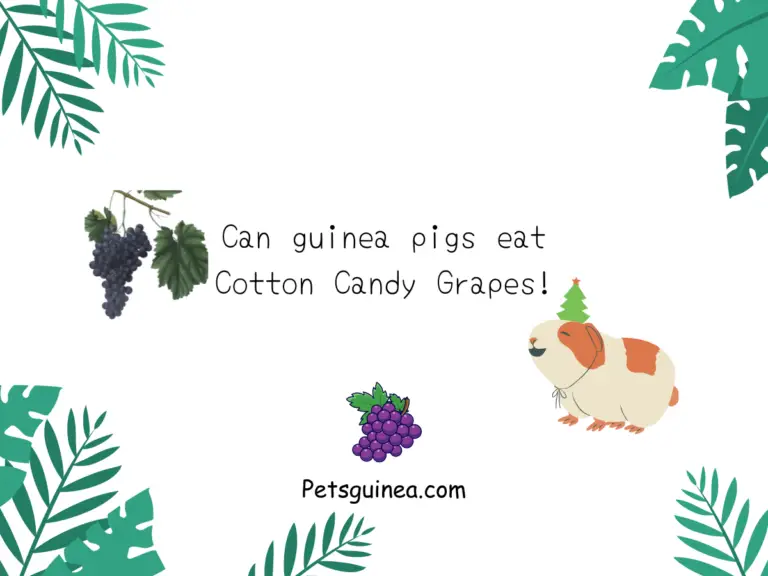Can Guinea Pigs Eat Sugar Cane?
Guinea pigs, those adorable little creatures that often steal our hearts with their cute antics and gentle nature, require a balanced diet to thrive. As responsible pet owners, it’s essential to provide them with nutritious foods that meet their dietary needs. But what about sugar cane? Can this sweet treat be a safe addition to your guinea pig’s menu? Let’s delve into the topic to understand the benefits and risks of feeding sugar cane to guinea pigs.
Quick Facts About Sugar Cane
Before we explore whether guinea pigs can indulge in sugar cane, let’s quickly review some key facts about this plant:
Botanical Information:
Sugar cane belongs to the genus Saccharum and is a tall, thick grass native to tropical regions.
Nutritional Content:
Sugar cane is primarily composed of water and carbohydrates, with small amounts of fiber and minerals.
Sweet Taste:
As the name suggests, sugar cane contains sucrose, the same sweet substance found in table sugar, which gives it its characteristic sweet taste.
Cultural Importance:
Sugar cane has been cultivated for centuries for its sweet juice, often used to produce sugar, molasses, and various sweeteners.
Now that we understand sugar cane, let’s explore whether it suits our guinea pig friends.
Benefits of Feeding Guinea Pigs Sugar Cane
While sugar cane may seem like a tasty treat for our furry companions, it’s essential to consider its potential benefits before incorporating it into their diet. Here are some potential advantages of feeding sugar cane to guinea pigs:
Hydration:
Sugar cane has a high water content, which can help keep guinea pigs hydrated, especially during hot weather.
Nutritional Variety:
Introducing small amounts of sugar cane to your guinea pig’s diet can give them a new and exciting flavor profile, adding variety to their meals.
Chewing Exercise:
Gnawing on sugar cane can provide guinea pigs with valuable chewing exercise, essential for maintaining dental health.
While these benefits may make sugar cane seem like a tempting treat for guinea pigs, weighing them against the potential risks is crucial.
Risks Associated With Feeding Sugar Cane To Guinea Pigs
Before offering sugar cane to your guinea pig, you must know the potential risks. Here are some factors to consider:
Digestive Issues:
Guinea pigs have sensitive digestive systems, and consuming too much sugar cane can lead to digestive upset, including diarrhea and bloating.
High Sugar Content:
While guinea pigs enjoy sweet treats, too much sugar can be harmful to their health, leading to obesity, dental problems, and other health issues.
Risk of Choking:
The fibrous nature of sugar cane can pose a choking hazard to guinea pigs, especially if they cannot chew it properly.
Potential Pesticide Exposure:
Commercially grown sugar cane may contain pesticide residues, which can harm guinea pigs if ingested.
Considering these risks, it’s essential to approach feeding sugar cane to guinea pigs with caution and moderation.
Exploring Guinea Pig Eating Habits
Understanding guinea pig eating habits is essential for providing them with a balanced & nutritious diet. Here are some key points to consider:
Herbivorous Diet:
Guinea pigs are herbivores, meaning they primarily eat plant-based foods such as hay, vegetables, and fruits.
Constant Grazers:
Guinea pigs have a natural tendency to graze throughout the day, so it’s essential to provide them with access to fresh food and water at all times.
Selective Eaters:
While guinea pigs may enjoy a variety of foods, they can be picky eaters, so it’s essential to introduce new foods gradually and observe their preferences.
Understanding these eating habits can help ensure that guinea pigs receive the nutrition they need to stay healthy.
Can Guinea Pigs Have Sugar Cane?
Now that we’ve explored the potential benefits & risks of feeding sugar cane to guinea pigs let’s address the question: Can guinea pigs have sugar cane?
While guinea pigs can technically consume sugar cane, it’s crucial to do so in moderation and carefully consider the risks involved. Here are some guidelines to follow:
Moderation:
Offer small amounts of sugar cane as an occasional treat rather than a staple in your guinea pig’s diet.
Quality Control:
If you feed sugar cane to your guinea pig, opt for organic or pesticide-free varieties to minimize the risk of pesticide exposure.
Preparation:
Remove any tough outer layers and cut the sugar cane into small, manageable pieces to reduce the risk of choking & make it easier for guinea pigs to chew.
Following these guidelines can help minimize the potential risks of feeding sugar cane to guinea pigs.
How to Introduce New Foods to Guinea Pigs
Introducing new foods to guinea pigs can be an exciting experience, but it’s essential to do so gradually and with care. Here are some tips for introducing sugar cane and other new foods to your guinea pig’s diet:
Start Small:
Offer a small piece of sugar cane to gauge your guinea pig’s reaction and monitor for any signs of digestive upset.
Monitor Closely:
Pay close attention to your guinea pig’s behavior and health after introducing sugar cane, watching for changes in appetite, energy levels, or stool consistency.
Variety Is Key:
While sugar cane can provide guinea pigs with a tasty treat, offering diverse foods is essential to ensure they receive the obligatory nutrients for optimal health.
Introducing new foods gradually and monitoring your guinea pig’s response can help ensure a smooth transition to a varied and balanced diet.
Alternatives to Sugar Cane for Guinea Pig Treats
If you’re hesitant about feeding sugar cane to your guinea pig, there are plenty of alternative treats to consider. Here are some healthy and safe options:
Fresh Vegetables:
Guinea pigs enjoy a variety of vegetables, including carrots, bell peppers, and leafy greens like kale and spinach.
Fruits:
Offer little amounts of fruits such as strawberries, apples, and blueberries as occasional treats.
Commercial Treats:
There are many commercially available guinea pig treats made from natural ingredients that can provide a safe and tasty alternative to sugar cane.
By offering diverse treats, you can keep your guinea pig happy and healthy without relying on sugar cane.
Conclusion:
In conclusion, while sugar cane may seem like a tempting treat for guinea pigs, it’s essential to consider the prospective risks before incorporating it into their diet. While small amounts of sugar cane can provide guinea pigs with hydration, variety, and chewing exercise, it’s crucial to do so in moderation and carefully consider the risks involved. Understanding guinea pig eating habits, introducing new foods gradually, and offering a diverse range of treats can help keep your pet pig happy and healthy for years.
Remember, the key to a happy & healthy guinea pig is a balanced and nutritious diet, so always prioritize their well-being when selecting foods to enjoy.
FAQs:
While guinea pigs can technically consume sugar cane, it’s not recommended as a regular part of their diet. Sugar cane is high in sugar and can cause digestive issues and obesity if consumed in excess.
Offering small amounts of sugar cane as an occasional treat is generally safe for guinea pigs. However, moderation is vital to preventing health problems associated with excessive sugar intake.
Sugar cane contains water and can help keep guinea pigs hydrated. Additionally, it provides chewing exercise and adds variety to their diet.
Yes, there are risks, including digestive issues, obesity, and dental problems due to the high sugar content of sugar cane. Additionally, fibrous chunks of sugar cane may pose a choking hazard.
No, guinea pigs should not eat acorns, Which contain tannins & other compounds that can harm guinea pigs and cause digestive upset.
Remove tough outer layers and cut sugar cane into small, manageable pieces to prevent choking. Ensure it’s fresh and free from pesticides.
Yes, there are plenty of safe alternatives, such as fresh vegetables (e.g., carrots, bell peppers, leafy greens) and fruits (e.g., strawberries, apples, blueberries).

